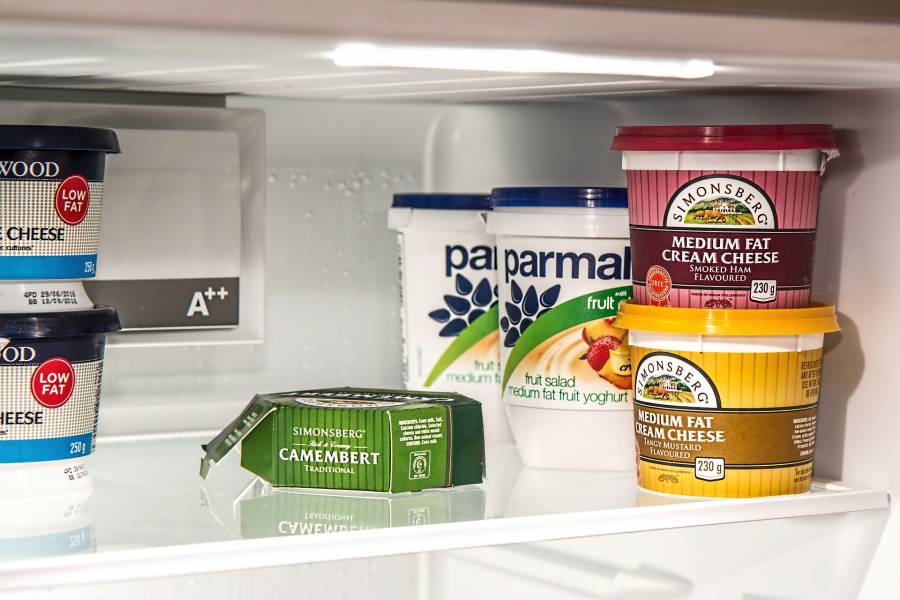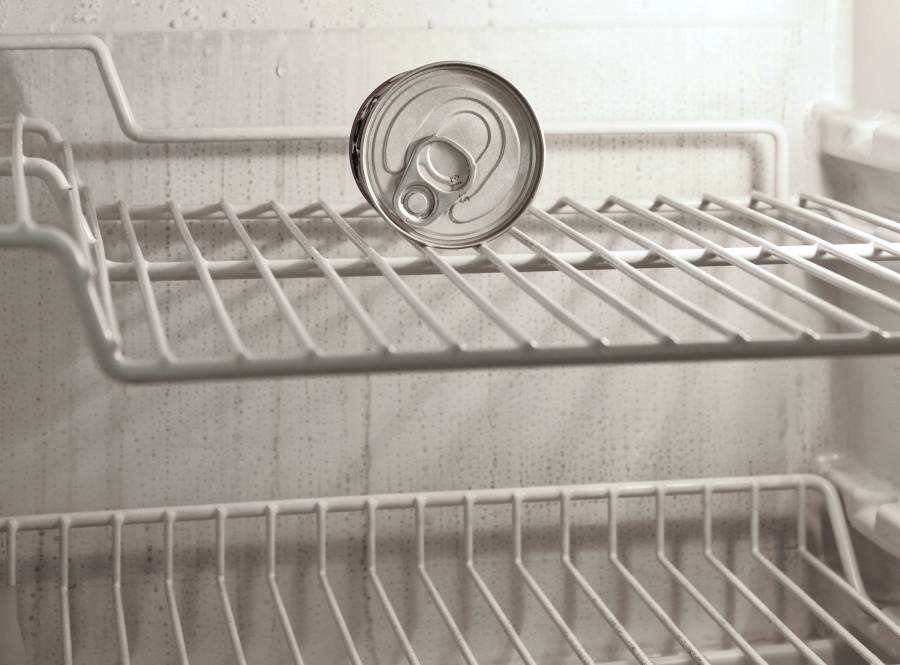Condensation occurs when moist warm air enters your freezer and comes in contact with cold air. As the warm moist air cools, you will see water droplets on the freezer’s exterior.

Condensation is common in freezers; however, it’s an issue you must sort out immediately.
Condensation can result in food spoilage or water damage or become an issue for the whole system.
What are the causes of condensation in the freezer, and how do you prevent it? Read on to learn.
Causes Of Condensation In Freezer
Condensation in your freezer is why you have water at the bottom or outside your freezer; this can be very annoying and sometimes unhygienic.
However, you don’t have to worry; finding a solution becomes easy once you know the causes. Below are some reasons for condensation in freezers.
Broken Seal
One of the leading causes of condensation in freezers is broken seals.
When the seal of your freezer is loose, hot air escapes into the freezer and comes in contact with the cold air inside, and that’s the beginning of condensation.
Hot Leftovers
To save money and preserve your already-cooked meal for some days, people keep hot food and leftovers inside the freezer, another cause of condensation.
You make it more complicated when you immediately put the leftover inside the freezer while still very hot. The warm breeze from the food will cause dampness inside the freezer.
Drainage Issues
One of the things most users don’t understand is that freezers have small drains. You can block your freezer’s drain with loose food, which makes it impossible for the standing water to flow out.
Another drainage issue is the possibility that your freezer is not sitting up correctly, making it challenging to drain appropriately, leading to condensation.
Energy Saving Features
Some freezers have some unique features designed to save energy consumption. However, while the freezer does not consume too much energy, it may be the reason for the condensation in your freezer.
Worn Gasket
The door gasket is there to keep your door firm and closed; if the door gasket of your freezer is worn or has fallen off, it can be the reason for the condensation.
Other causes of condensation in the freezer may include:
- Faulty fridge pan
- Low temperature
- Issues with the defrosting mechanism
Solutions To Condensation In Freezer
As stated above, there are several causes of condensation in your freezer; however, knowing the causes makes it easy to end the occurrence once and for all. How do you fix condensation in the freezer?
Unclog The Drainage Hole
You will find the drainage hole at the back of the freezer, and the hole is there so that condensation can pass through it into a small pan at the top of the compressor.
The condensation will then evaporate when it comes in contact with the heat from the compressor.
Once the hole is blocked, it will prevent this process, hence excessive condensation inside and outside the freezer.
Clean the drainage hole occasionally with something like a pipe cleaner or cotton bud so that the whole will be free to perform its functions.
De-Ice The Freezer
If you notice excessive ice build-up in your freezer or the back wall, it’s time to de-ice to prevent condensation.
You can have too much ice build-up because you overfill the freezer; this will prevent air from circulating, and defrosting will be impossible.
Also, ice build-up prevents water from moving out of the freezer, and that’s the beginning of condensation.
You can fix this issue by de-icing your freezer: switch off the freezer and let all the ice melt, check the drainage hole so that condensation can flow out, and turn your freezer back on.

Check Your Freezer’s Thermostat
The thermostat controls the temperature in your freezer; if you unknowingly set it at the wrong temperature, it can cause condensation.
You need to note that the thermostat is somehow backward; the higher the number, the colder the freezer.
If your dial is from 1 to 7, 7 will be the coldest; if you notice condensation, lower the temperature for some time, which will fix it.
Avoid Putting Hot Food In The Freezer
Putting hot food inside the freezer will always cause condensation; to prevent that, let your food cool down a little before you take it inside the freezer.
It doesn’t mean the food jas to get cold before you put it inside the freezer; just let the heat reduce.
Keep The Freezer Door Closed Always
Opening down the freezer door will allow hot air from outside to escape into the freezer, and once there is a contract between the two types of air, condensation occurs.
To prevent this, keep your freezer doors closed; the more you keep the door open, the higher the condensation level. Keeping the door open increases temperature and allows moisture inside.
Avoid Clutter In The Freezer
Your freezer is good for accumulating things; however, if things are much inside, especially plastic and square containers, they can block the freezer vents.
Once the things inside the freezer block the vent, air will not flow to some areas, and condensation will result from this.
To avoid situations like this, remove meals you are not going to eat, liquids, juice, or ice cream you are not going to take from your freezer to create some space for air to flow.
Make Sure Your Freezer Is Level
When your freezer is not level, water won’t flow to the drain and will most likely remain at the bottom of the unit. Excess water will lead to condensation.
Most freezers come with adjustable legs, adjust them and make sure your freezer is sitting up well. Check the button unit of your freezer to get rid of the water inside.
Upgrade To A Newer Freezer
It is relatively easy but requires cash. Old freezers generate faults quickly, and condensation is one of them.
Some issues can be fixed, and some won’t, to eliminate constant problems. If you have applied all the fixes on the list and condensation still won’t stop, it’s time to get a new freezer.
Why Is Condensation In Freezer An Issue?
Condensation in your freezer is a sign that your freezer cannot regulate temperature, which can become a safety problem.
Condensation inside and outside the freezer can cause water damage; it can also result in electrical shock, depending on where you locate the freezer.
Once you notice condensation, sort the issue out as soon as possible before it gets complicated.
Do Refrigerators Freeze Up When The Door Is Left Open?
Fridges don’t freeze up when the door is left open.
The temperature inside a fridge is maintained by circulating a blend of coolant and refrigerant through coils in the back of the fridge, which are cooled by a fan that blows air over them.
You only need to close the door to keep everything cool. Keeping the door open for too long will cause a drop in temperature.
Conclusion
Condensation in the freezer is a common issue, but it’s pretty easy to sort out if you follow all the fixes on the list above.
If condensation persists after applying some of the solutions listed above, you can replace your freezer.
